Description
ABSTRACT
An Examination of the Role of International Arbitrators
David Ike*
Whether international arbitration is sustainable is the pivot of this article; reason for this concern is the increased delays being experienced in arbitral preceeding which is anti objective of the process. This article explores how arbitrators conduct themselves in the course of arbitral proceedings. The finding and recommendation therefrom is that if arbitrators continue playing their quasi-judicial role impeccably, enforcement of awards will be easier and businesses shall remain positive in the use of arbitration.
INTRODUCTION
With the advent of the global economy, arbitration has become the preferred mechanism for resolving international disputes. Today international arbitrators resolve billions of dollars worth of disputes.1 Arbitration has taken on such prominence in the international context that commentators express “little doubt that arbitration is now the first-choice method of binding dispute resolution” and has ”largely taken over litigation”.2 Arbitration has historically been extolled as a confidential, quick, and cost-efficient method for resolving disputes, which creates an internationally enforceable award. Those virtues, however, have eroded with the expansion in the number of parties using arbitration, the increasingly adjudicative nature of the process and the shift in the group serving as arbitrators, which has grown beyond the ”grand old men” to a younger generation of arbitration technocrats.3
Instead, arbitration may now take just as long and be just as costly as litigation before national courts.4 Confidentiality has eroded as institutions such as the American Arbitration Association (hereinafter “AAA”) and International Centre for Settlement of Investment Disputes (hereinafter “ICSID”) draft rules with presumptions in favour of the public disclosure of arbitral awards.5 Perhaps more significantly, the signing of the Hague Convention on Choice of Courts means arbitration awards do not have the same monopoly on streamlined enforcement mechanisms.6
Given these shifts in arbitration’s paradigm,7 what is left to make arbitration preferable to national court litigation? It is neutrality, but neutrality in two different senses. First, there is neutrality of forum, where the place of dispute resolution does not unfairly benefit either party or create a ”home
* Lecturer, Faculty of Law, Imo State University, Owerri
- Franck S. D., ‘The Legitimacy Crisis in Investment Arbitration: Privatizing Public International Law Through Inconsistent Decisions’ (2005) 73 Forham Law Review 1521 [hereinafter Franck, Inconsistent Decisions].
- Adrian W., ‘Why Arbitration Institutions Matters’ (2001) Law in Transition: Contract Enforcement 39 accessed 12 March 2016.
- Ibid.
- Jack J. C. Jr., ‘Toward A Complementary Use of Conciliation in Investor-State Disputes-A Preliminary Sketch’ (2005)12 Journal of International Law & Policy, UC Davis School of Law 7, 11.
- American Arbitration Association, ‘International Dispute Resolution Procedures’ article 27(8) accessed 8 December 2005. [hereinafter AAA International Rules].
- Ibid.
- Ibid.

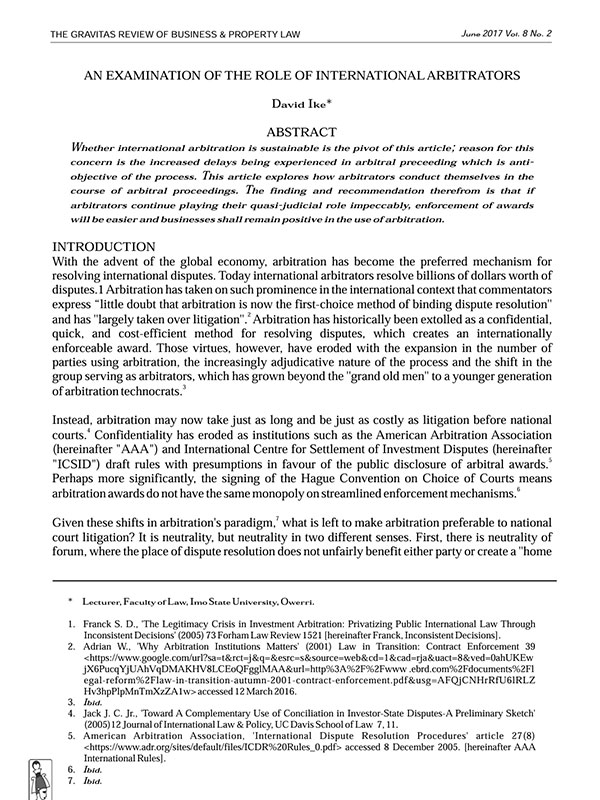
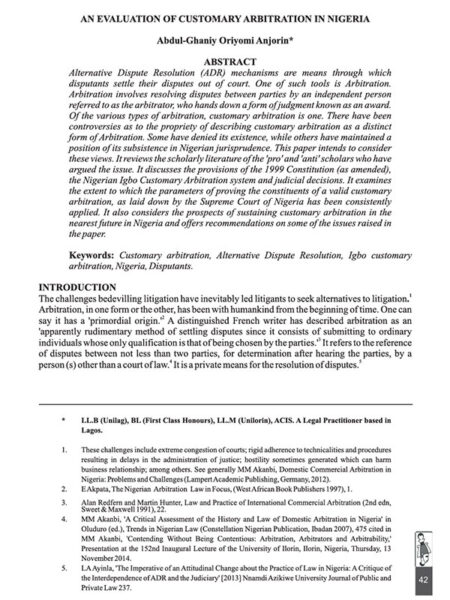
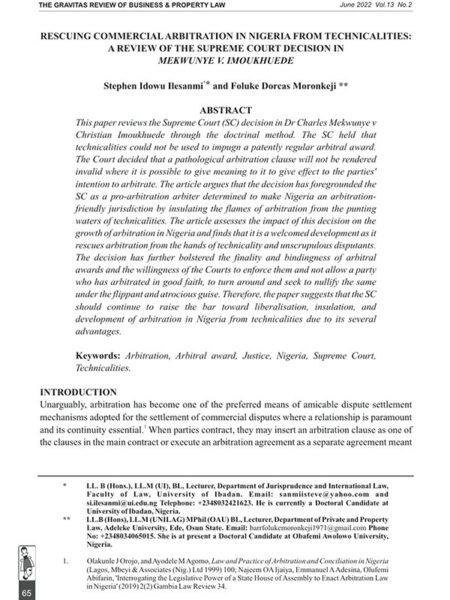
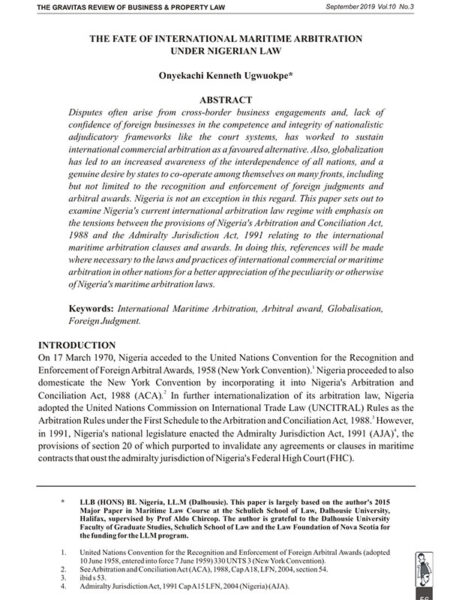
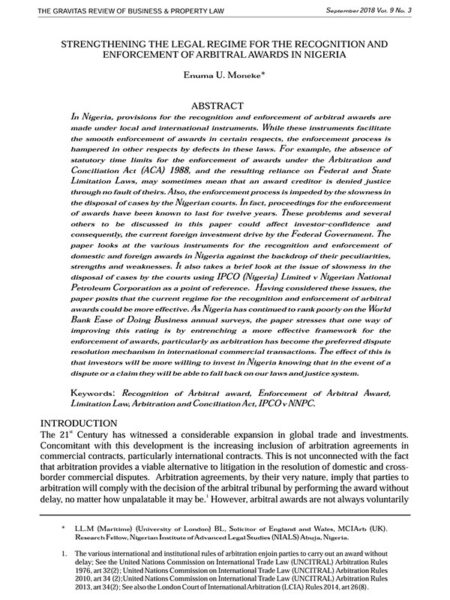


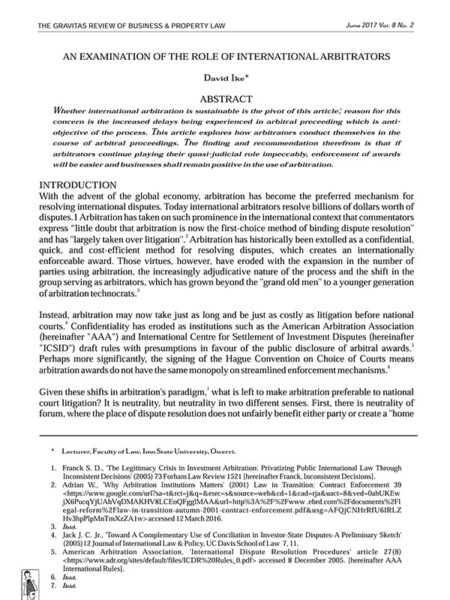
Reviews
There are no reviews yet.